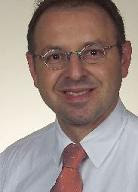We tried google-docs before, which is nice for joint editing but lack essential functions and is to my experience unreliable. We lost most of the document we created at some point. The same happened to one of our students writing up his project…
The purists argue that Latex and SVN is the solution - however if you have ever worked with real people outside the geek world you will know that it is not :-) and it would question if there was any progress in text processing in the last 20 years at all.
Is it only me who does not see the solution? Here are the requirements:
- Shared editing of a document of considerable size (100+ pages)
- Functionality required for larger scientific documents such as styles, (cross)-reference, creation of tables, etc.
- Comfort functions in editing, such as spelling and grammar checking, auto completion, tracking of changes
- Works in a heterogeneous environment including Macs and Windows and across administrative domains (e.g. people can be behind different firewalls)
- Automatically creating a backup of the document every few minutes
- Integration of other media (e.g. images) and data sources (e.g. spreadsheet tables)
In comparison to some years ago awareness, video and audio conferencing with skype works very well - but again for application sharing I have not seen a perfect solution that works in real live - any suggestions?
PS: our final and printed document missed 115 spaces (a known error from exchanging docx between Windows and Mac)











